I lack confidence in reading Middle Eastern body language, but I was pretty sure that there was a bit of an argument going on at the doorway of our bit of Portacabin: our clinic in Diavata refugee camp in northern Greece. The argument was between a group of Arabic-speaking Syrian men and a Farsi-speaking Afghan, although how you can argue when you don't understand each other, I'm not sure. Akram was trying to settle the argument, which seemed to be about whose turn it was to see the doctor next. Akram is one of our Arabic translators and he called for help from a Farsi translator. Two nurses who were triaging patients also were entangled in the discussions.
I knew what the Afghan had come about; he clutched the chest x-ray I'd sent him to hospital for the previous day. I beckoned him in past the arguing men and various members of our Medecins du Monde team. I checked that the x-ray was normal and managed to extricate Akram for long enough to translate something to reassure the patient and that the chest pain he'd told me about the previous day was nothing worrying.
I then attempted to call in my next patient, but he and his friends were so busy arguing that it was difficult to get their attention. Akram was still trying to calm the angry Syrians.
Understandably the refugees are frustrated, impatient to move on to a better place. They want to leave the tents, to somewhere that their womenfolk can cook for them again. They don't like the bland grey food provided by the Greek army. There is nothing to do in the camps. Some are even saying they want to go back to the war zone.
Eventually my twenty-something patient came into my small hot consulting room where Sarah (another excellent translator) told me he had a cough and fever. Like most of the refugee men he was a heavy smoker and I also needed to keep in mind that there is TB in the camp. I was about to clap a stethoscope on his chest when he stood and strode out of the room to rejoin the argument.
I was sweaty, I'd already seen a lot of patients and I was keen to complete this consultation so I could sit for a few seconds and gulp down some water. I went after my patient, took him by the arm and led him back to the consultation room. Then I squatted down at one of the big metal boxes of medicines on the floor and pulled out some treatment for him. He stayed for long enough to take the tablets and return to the "discussions."
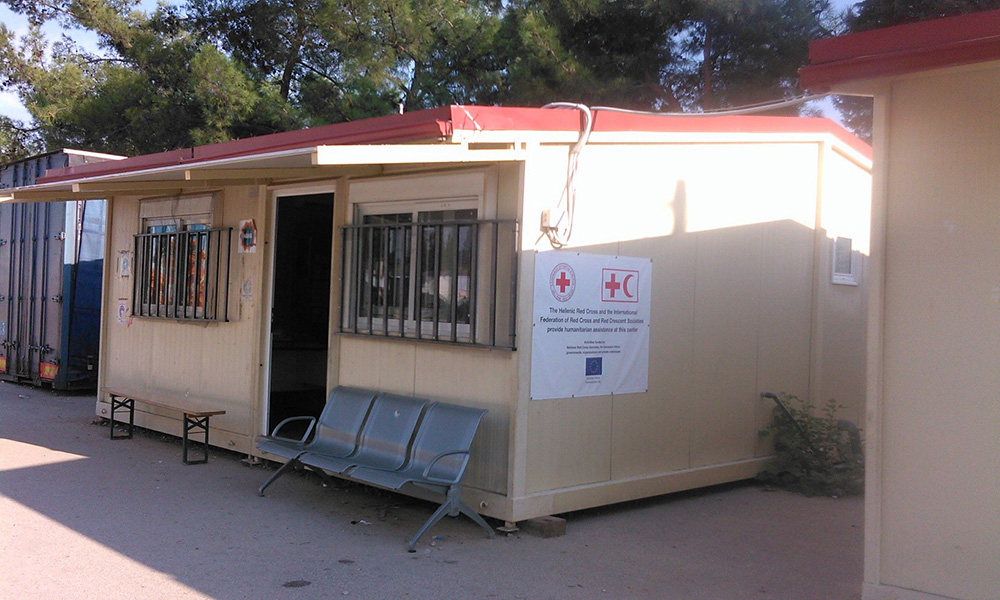 |
| Clinic in a Portacabin after everyone has gone home |
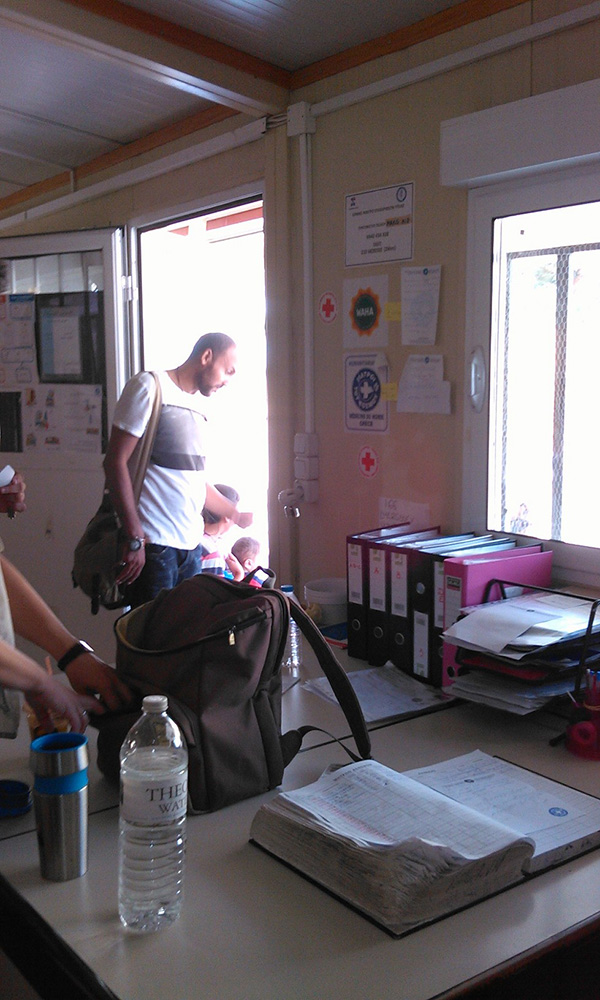 |
| Inside the clinic near Thessaloniki |
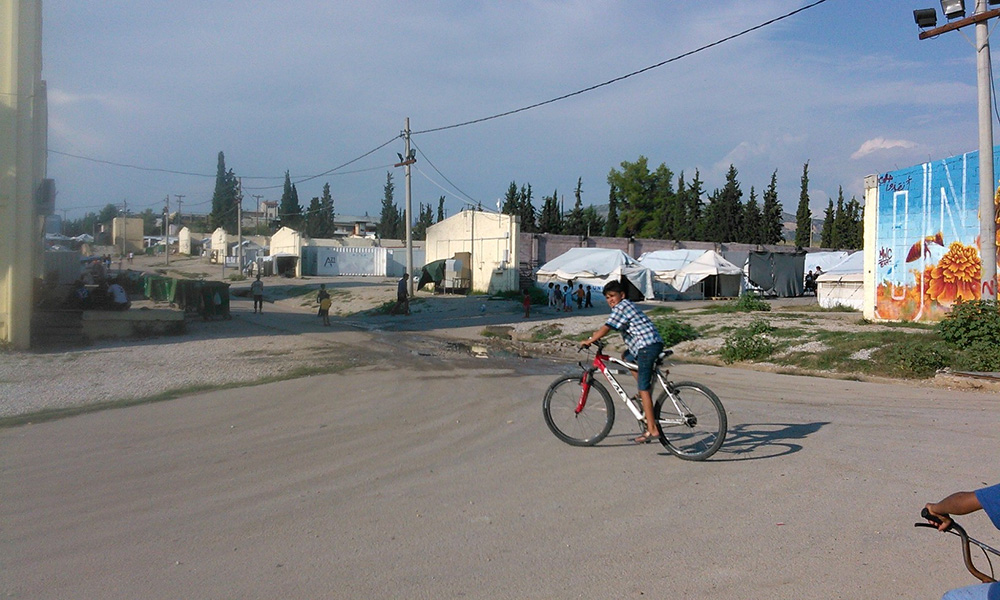 |
| The edge of Diavata camp for Syrian refugees and others |
This was my first day at Diavata camp, a facility set up in February 2016 in a barracks to accommodate 2000 people. Currently 940 live there. The population changes as refugees move on, move between camps, are found hotels or houses, join relatives, etc.
I really felt I had plunged straight in at the deep end in after arriving late the previous night. I'd thought my first patient would be quick and easy. He was in his teens, looked well and had come to discuss some blood tests taken at the hospital. The young lad was with his mother who was worried about hepatitis. Conditions in the camp are less than perfect and hepatitis A infection is rife. The boy's blood tests were abnormal but showed nothing dangerous so I spent what must have been 30 minutes trying to reassure the mother, while she wept.
I got to a point where I thought I'd made the woman easier in her mind when she announced that she needed to discuss her anaemia. I could see my translator growing somewhat restless and then she mentioned the growing queue of patients waiting to see me. I later learned that one previous volunteer doctor routinely took two hours per patient and perhaps my new colleagues feared I would be just as slow.
Fortunately most of the rest of the people I saw that day were straightforward with problems that were quick to sort: chest infections; skin infections; sprains; knee pain; ear infections; tonsillitis most of which were readily treatable with the antibiotics and anti-inflammatory medicines in one or other of the big metal trunks strategically placed on the floor on the clinic.
My main problem for the rest of the day was deciphering the names of medicines, many of which were labelled in Greek, or Greek and German, if I was lucky, or deciding on whether to dispense preparations that are never used in the UK.
My next blog about my refugee work is
Emergency!
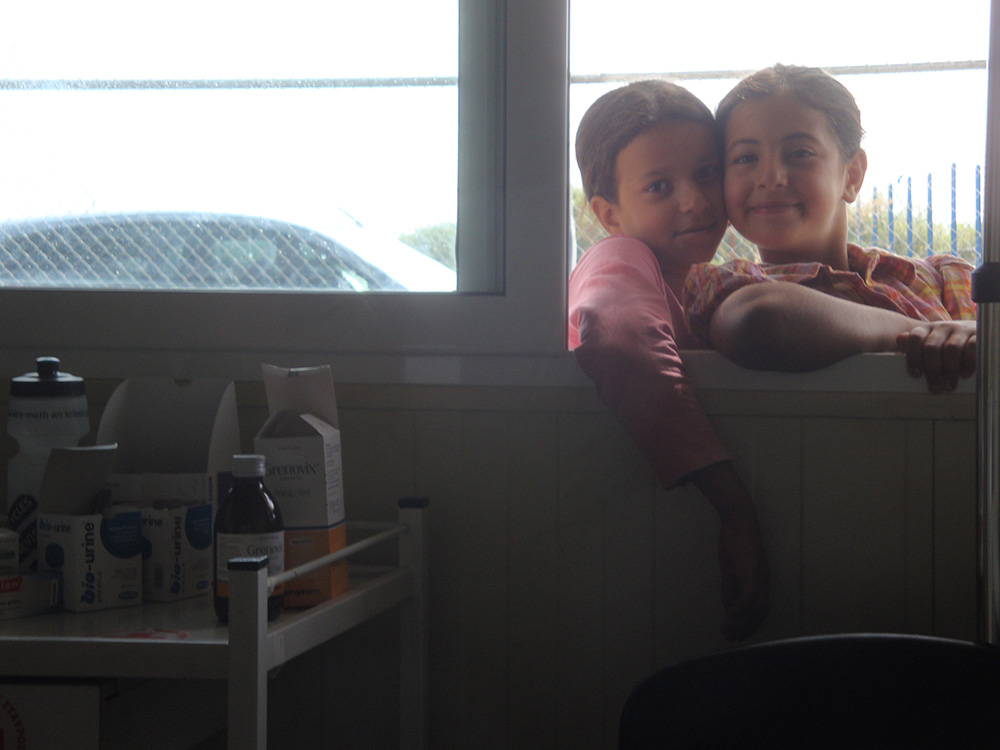 |
| Cheeky girls keen to study my consultation style |
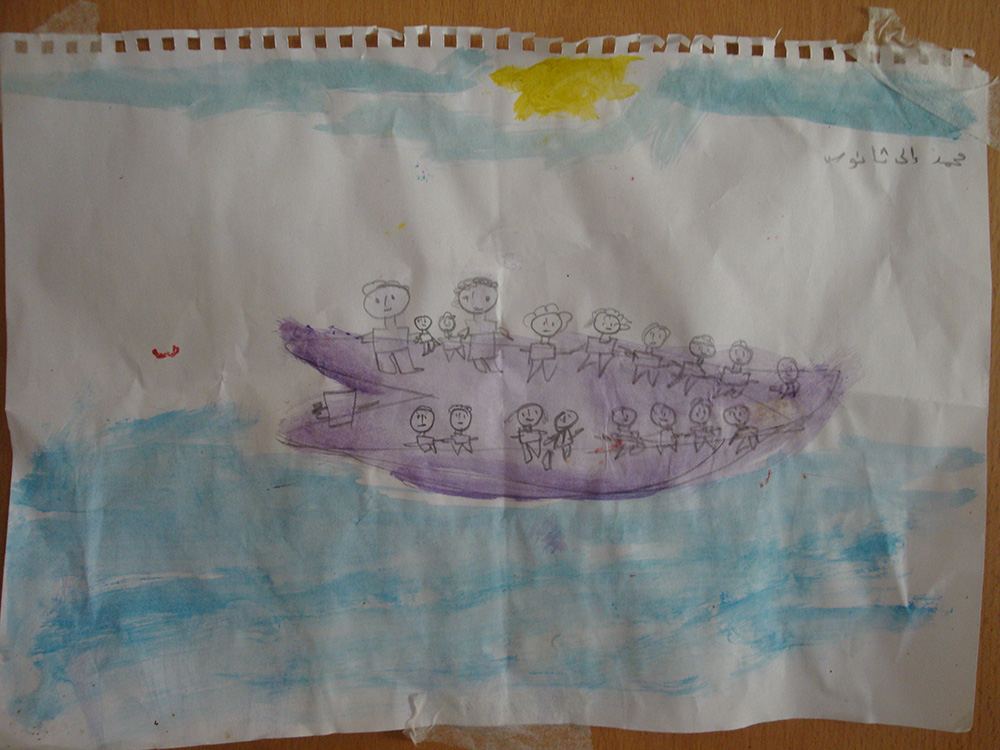 |
| A Syrian child's drawing of her journey to Greece |